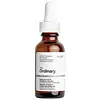What's inside
What's inside
 Key Ingredients
Key Ingredients

 Benefits
Benefits

 Concerns
Concerns

 Ingredients Side-by-side
Ingredients Side-by-side

Salicylic Acid 2%
MaskingWater
Skin ConditioningDipropylene Glycol
HumectantPentylene Glycol
Skin ConditioningPolysorbate 20
EmulsifyingButylene Glycol
HumectantGlycerin
HumectantSodium Hyaluronate
HumectantDipotassium Glycyrrhizate
HumectantAllantoin
Skin ConditioningPanthenol
Skin ConditioningPEG/PPG-17/6 Copolymer
SolventMethyl Gluceth-20
HumectantGlycereth-26
HumectantBis-PEG-18 Methyl Ether Dimethyl Silane
EmollientSodium Hydroxide
BufferingTetrasodium EDTA
Sodium Metabisulfite
AntioxidantSalicylic Acid 2%, Water, Dipropylene Glycol, Pentylene Glycol, Polysorbate 20, Butylene Glycol, Glycerin, Sodium Hyaluronate, Dipotassium Glycyrrhizate, Allantoin, Panthenol, PEG/PPG-17/6 Copolymer, Methyl Gluceth-20, Glycereth-26, Bis-PEG-18 Methyl Ether Dimethyl Silane, Sodium Hydroxide, Tetrasodium EDTA, Sodium Metabisulfite
 Reviews
Reviews

Ingredients Explained
These ingredients are found in both products.
Ingredients higher up in an ingredient list are typically present in a larger amount.
Pentylene glycol is typically used within a product to thicken it. It also adds a smooth, soft, and moisturizing feel to the product. It is naturally found in plants such as sugar beets.
The hydrophilic trait of Pentylene Glycol makes it a humectant. As a humectant, Pentylene Glycol helps draw moisture from the air to your skin. This can help keep your skin hydrated.
This property also makes Pentylene Glycol a great texture enhancer. It can also help thicken or stabilize a product.
Pentylene Glycol also acts as a mild preservative and helps to keep a product microbe-free.
Some people may experience mild eye and skin irritation from Pentylene Glycol. We always recommend speaking with a professional about using this ingredient in your routine.
Pentylene Glycol has a low molecular weight and is part of the 1,2-glycol family.
Learn more about Pentylene GlycolSalicylic Acid (also known as beta hydroxy acid or BHA) is a well-known ingredient for treating skin that struggles with acne and clogged pores. It exfoliates both the skin's surface and deep within the pores to help clear out buildup, control oil, and reduce inflammation.
Unlike AHAs (alpha hydroxy acids), salicylic acid is oil-soluble. This allows it to penetrate into pores which makes it especially effective for treating blackheads and preventing future breakouts.
Salicylic acid is also known for its soothing properties. It has a similar structure to aspirin and can calm inflamed or irritated skin, making it a good option for acne-prone skin that is also sensitive.
Concentrations of 0.5-2% are recognized by the U.S. FDA as an over-the-counter topical acne product.
It can cause irritation and/or dryness if one's skin already has a compromised moisture barrier, so it's best to focus on repairing that before introducing this ingredient into your routine.
While salicylic acid does not increase sun sensitivity, it’s still important to wear sunscreen daily to protect your skin.
If you are looking for the ingredient called BHA or Butylated Hydroxyanisole, click here.
Learn more about Salicylic Acid